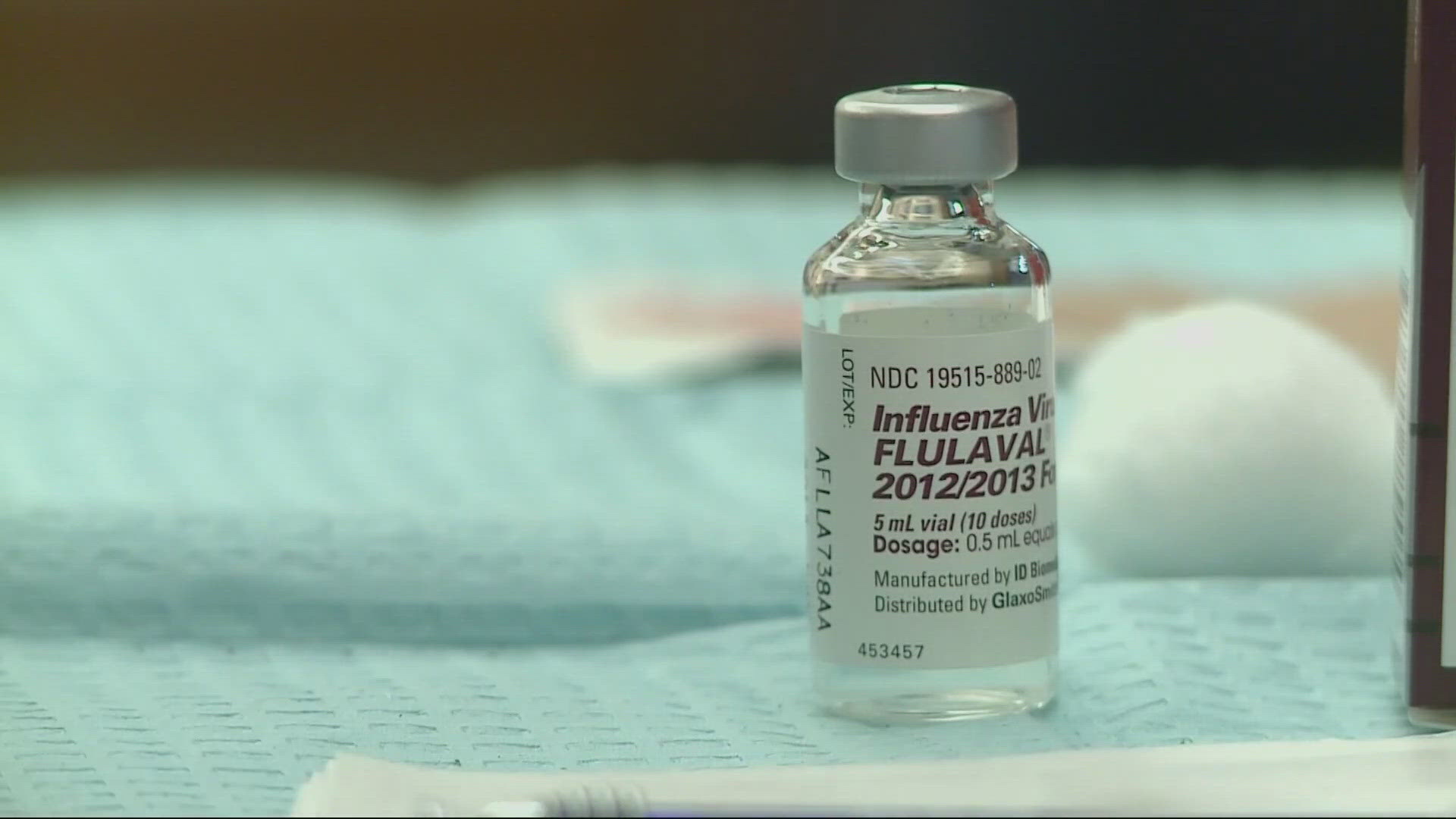PORTLAND, Ore. — Oregon health officials are urging residents to stay up to date on vaccinations ahead of what they expect will be a somewhat unpredictable respiratory virus season.
"Every respiratory season, we see a dramatic increase in the number of hospitalizations and deaths caused by respiratory viruses. And we cannot always predict who will become severely ill," Dr. Melissa Sutton, Oregon Health Authority medical director for respiratory viral pathogens, said at a news conference Thursday morning.
The main concerns are COVID-19, RSV and influenza, but Multnomah County Health Officer Dr. Richard Bruno said Oregon is also currently facing record high levels of measles and pertussis, also known as whooping cough, and he and other officials urged residents to make sure their own immunizations and those of their children are up to date.
Oregon has tracked 31 measles cases so far this year, which is the highest since 1991. The most recent case was in August, Bruno said, so it's possible the current wave is waning — but it could also pick up again now that the school year is underway, because the state's school-age population has fallen short of the 95% vaccination rate needed to achieve herd immunity.
There have been 560 cases of pertussis so far this year, he said, which is also far more than in any prior recent year. Whooping cough is a bacterial infection, he added, so it's also critical to make sure that people with symptoms get checked out by a doctor who can prescribe antibiotics if necessary.
“Measles and pertussis are two of the most contagious diseases in the world, but they also have very effective vaccines. For measles, it's a good idea, whether you are immune or not. You are immune if you have received two doses of the vaccine, if you were born before 1957, or if you've been diagnosed with measles in the past,” Bruno explained.
Updated flu vaccines and COVID-19 vaccines are recommended for everyone age 6 months and older. The latest COVID booster formulation is already available in some parts of the state, Sutton said, and should become more widely available in the coming weeks. She recommended that people check with their own pharmacies or clinics about availability.
RSV vaccines are recommended for everyone age 75 or older, anyone age 60 or older with underling health conditions, as well as pregnant women to protect their infants. RSV infections in infants and young children can also be treated with a monoclonal antibody called Nirsevimab.
Sutton noted that every respiratory season sees a dramatic increase in hospitalizations and deaths caused by respiratory viruses.
“RSV is the most common cause of hospitalizations among infants in the U.S., with up to 3% of infants under 6 months hospitalized each year. Most of these infants have no medical conditions,” she added.
Vaccination is especially important in rural settings, where it can be harder to reach hospitals and clinics for treatment, according to Dr. Sarah Laiosa with the Harney and Malheur county health departments. But they're also important at the statewide level, because Oregon is one of the lowest-ranked states in terms of the number of available hospital beds.
"That means that any increase in respiratory diseases can quickly fill our emergency rooms and hospitals, slowing care for all and putting incredible pressure on our dedicated front line health care workers," she said.
In addition to vaccines, the officials recommended hand hygiene, cough covering, improved ventilation and staying home when sick as core tools to combat the spread of disease. Masking and avoiding crowded indoor gatherings are also options.
The severity of the season is difficult to predict, Sutton said, although based on trends in past years, it's likely there will be a COVID-19 surge later in the fall or winter season. Seasonal flu forecasts generally look at data from the southern hemisphere for guidance, she added, but the pattern has been very inconsistent this year, with some countries seeing severe outbreaks and others experiencing only mild respiratory virus seasons.
If you are unsure what’s available in your area, check in with your local health department, pharmacy or clinic.

